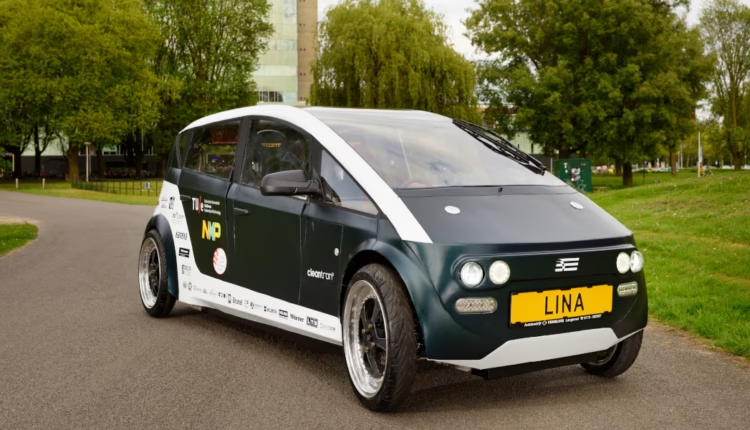Dutch Students Build World’s First Biocomposite Car
When the “Lina” car drove through the streets of the Netherlands in 2017, it looked like any other four-seater electric vehicle.
But behind its sleek design lay a groundbreaking innovation: Lina was the world’s first car structurally built from bio-composite materials.
According to Guinness World Records, the pioneering vehicle was designed by TU/Ecomotive, a student team from Eindhoven University of Technology.
Its chassis and body were created from flax fibres and bio-based plastics derived from sugar beets, offering a lightweight yet sustainable alternative to aluminium and carbon fibre, which require far more energy to produce.
The Lina weighed just 310kg, reached speeds of up to 80 km/h, and was fully street legal.
It also came fitted with smart features, including door sensors capable of recognising multiple users, making it ideal for car-sharing platforms.
“We took inspiration from what nature has to offer. The world has ending resources, and we want to apply our sustainable view to mobility,” the team said.
Since Lina’s debut, TU/Ecomotive has produced nine more eco-friendly prototypes. These include “Noah”, a circular car that can be recycled at the end of its lifespan; “Luca”, built from recycled ocean plastics; and “Zem”, designed to capture carbon dioxide while driving.
Other models, such as “Eterna” and “Phoenix”, focus on extending or replacing vehicle lifespans with recyclable parts.
“With only 30 students we build a new, innovative car every 1–1.5 years. If we can do it, why would big companies not be able to?” the team challenged.
Their work, Guinness notes, continues to inspire the global auto industry to rethink sustainability in design and production.

